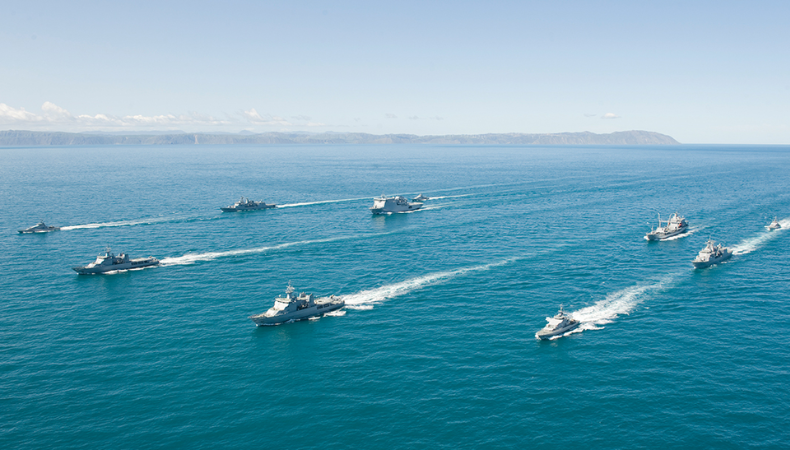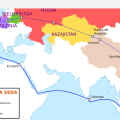Why is China focusing on the Middle East for its Naval Plans?

Driven by China’s increasing influence and the present geopolitical environment, recent developments in world diplomacy have shown a major change in China’s foreign policy. China has grabbed the chance to increase its involvement in other international venues, including Ukraine, Gaza, and Afghanistan, while Russian President Vladimir Putin’s attention stays on the continuous conflict in Ukraine. This strategic change, however, begs questions regarding possible overextension and the necessity of giving its resources cautious priority.
Diplomatic Innovations: Afghanistan, Gaza, Ukraine
Ukraine: Managing a Complicated Conflict
China’s participation in the Russo-Ukrainian War stands out for remarkable diplomatic activity. Recent visits to Guangzhou by Ukrainian Foreign Minister Dmytro Kuleba for negotiations with Chinese Foreign Minister Wang Yi highlight China’s aim to act as a mediator in the crisis. China co-published a peace plan aiming at war termination in May with Brazil. Following the meetings, Kuleba stated Kyiv’s eagerness to deal with Moscow, subject to Russia’s will for honest communication. China has shown a readiness to increase food imports from Ukraine, therefore establishing itself as a possible arbiter in the continuing crisis even while it has kept its “no limits” friendship with Russia.
Gaza: New Function in Middle Eastern Diplomacy
China’s diplomatic influence also reaches the Middle East, where it has helped to bring an accord among Palestinian factions including Hamas and Fatah. The accord helps the West Bank and Gaza to establish a transitional Palestinian government. Although some would consider these events as symbolic, others would regard them as a major step toward Palestinian unification. China’s conventional diplomatic posture is broken by its new mediation role in the Middle East, which also shows its increasing impact in regional politics.
Afghanistan: Establishing Strategic Bonds
China has been the first to formally acknowledge the Taliban government, therefore attaching a significant diplomatic mark in Afghanistan. This acknowledgement fits China’s geopolitical goals, especially in relation to its cooperation deal with Iran and the building of an oil conduit over Afghanistan. Delivering petroleum to China’s western border requires this pipeline, which also avoids routes via Russian and Indian oceans. China’s support of the Taliban highlights its aim to protect its geostrategic interests in Central Asia even as it negotiates difficult regional dynamics.
Travelling Land and Sea: A Juggling Act
Difficulties on the Front Lines—Land and Sea
China’s rising diplomatic activity coincides with rising regional tensions and home economic difficulties. The nation continues to reject the 2016 Permanent Court of Arbitration verdict and encounters opposition from its maritime neighbors, therefore posing continuous problems in the South China Sea. Furthermore unsolved are conflicts with Taiwan and issues over the Diaoyu (Senkaku) Islands with Japan. China’s expansionist ambitions and infrastructure projects—including military fortifications and island bases—have sour relations with neighbors and spurred support for the Quad grouping (Japan, India, Australia, and the United States).
Historical Comparisons: Strategic Change of the Ming Dynasty
China’s present diplomatic moves are reminiscent of past events, like the change of the Ming dynasty from marine to continental emphasis. The vast treasure fleet of the empire performed long-distance expeditions during the Ming period that finally proved fiscally untenable. The next stop of these missions signaled a return to a more land-based approach. Likewise, China’s recent diplomatic triumphs and activities in Afghanistan, Gaza, and Ukraine point to a possible change in direction from its maritime aspirations toward a fresh concentration on continental security.
Keep on Reading
Looking Ahead: Strategic Juggling
Recent diplomatic activities by China show a more general approach of increasing influence and safeguarding strategic interests. Still, the danger of overextension lurks, especially as China addresses concurrent land and marine issues. China’s future diplomatic and strategic strategies may be shaped by the choice to give land-based security top priority above marine aspirations.
The balance between marine and continental goals will be vital as China negotiates its changing position on the world arena. Along with the necessity to handle urgent continental security issues, China’s continuous shift to become a sea power would try its capacity to properly handle its resources and strategic goals.







